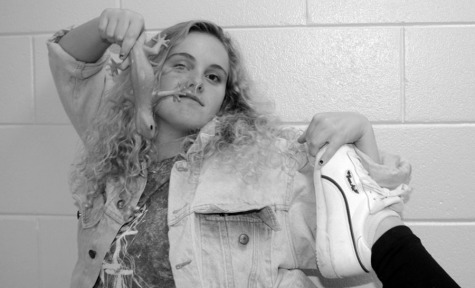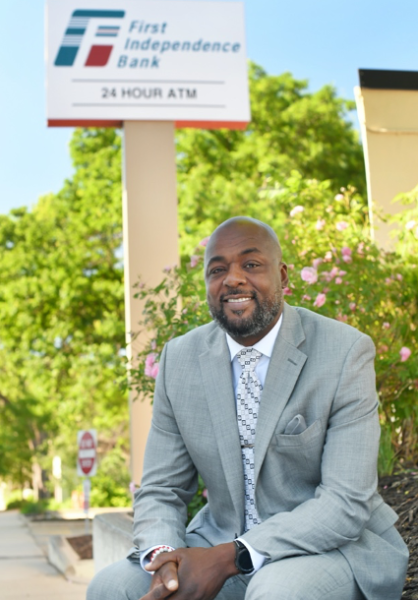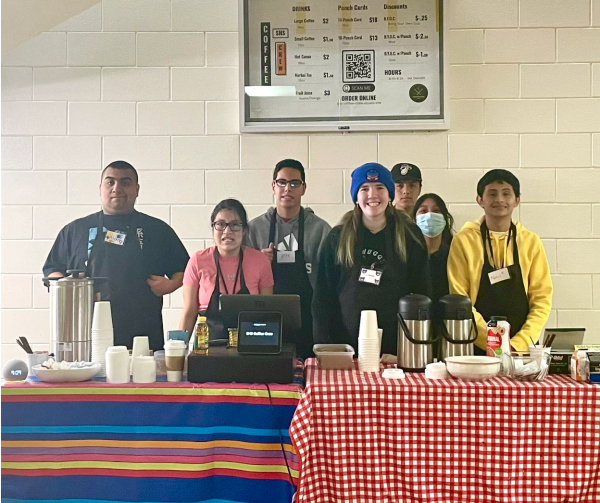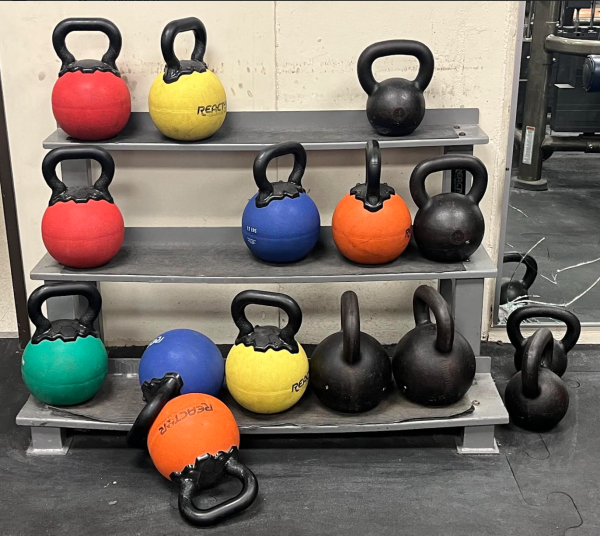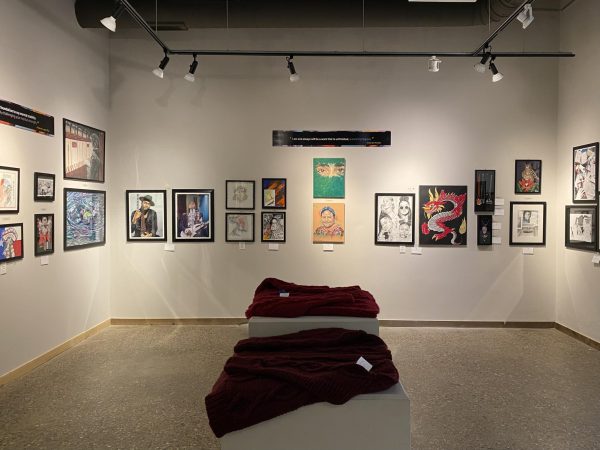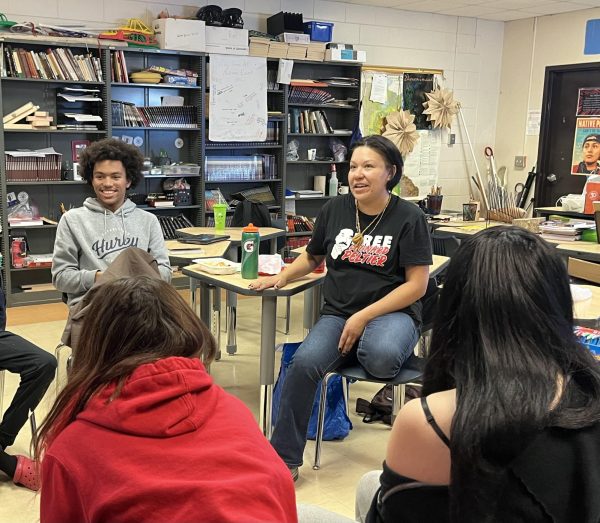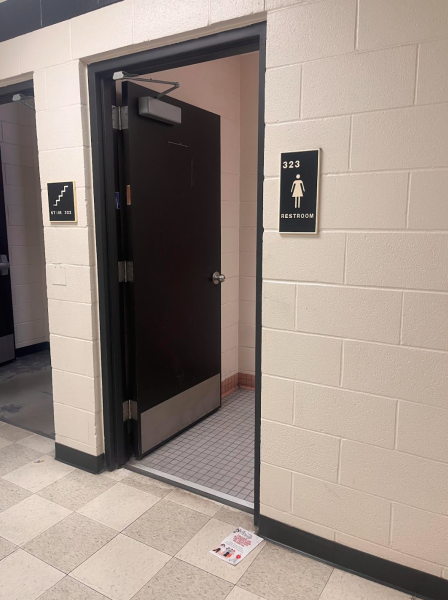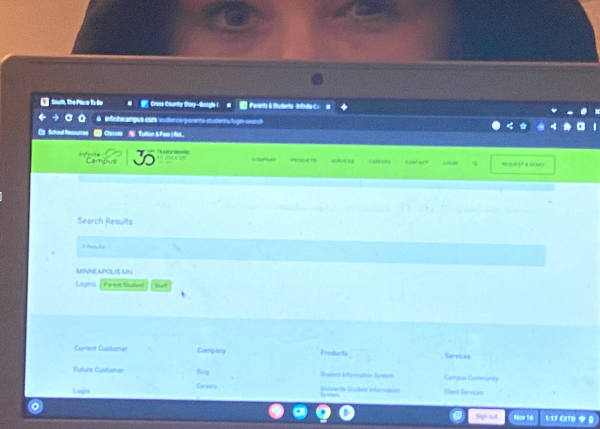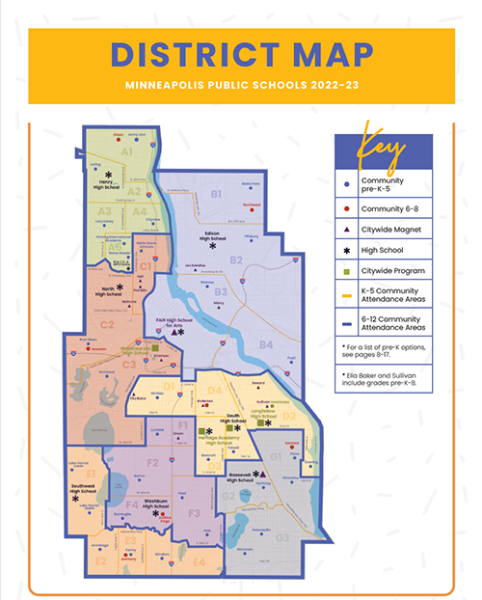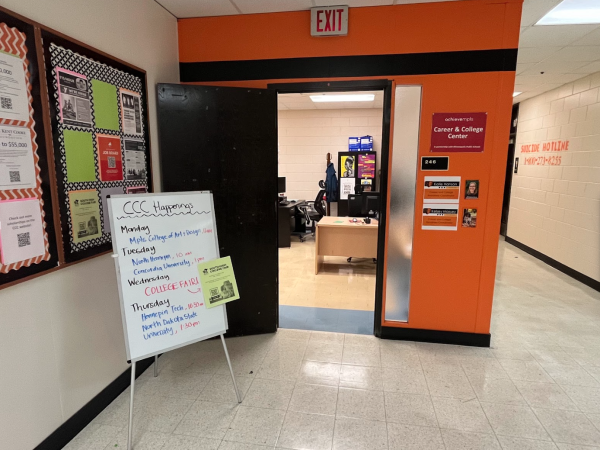Mr. Alabari’s range of experiences aid him in teaching math at South
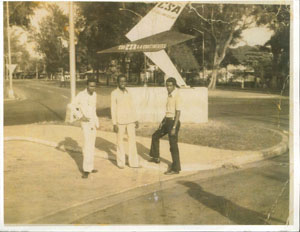
Photo courtesy of Mohamed Alabari
Math teacher Mohamed Alabari (far right) with friends in Havana, Cuba, where he studied during college.
April 22, 2014
“At first I was a very mediocre student,” explained Mohamed Alabari, one of South’s Intermediate Algebra and AP Statistics teachers. “But that one teacher, he really changed my life. I want to do that, too.”
Alabari was born in Wajaale, Somalia, near the border of Ethiopia as the oldest of 9. His home was “Very poor, but rich in love.” He learned early on that an education was his only path to a better life. “I had to become responsible quickly,” he explained. “All the parents push because if you don’t succeed in school you don’t have a life there.”
Although he graduated from high school as one of the top ten students in the country, his early school years were very difficult. “My parents were really conscientious, but they didn’t guide me much. They gave me what I needed.” At that time, if a child in Somalia failed a grade they would be withdrawn from school.
“When we started grade three there was a small debate where they picked the top students to debate, so I was not one of them.” As the teacher questioned the debaters, Alabari started to realize he knew the answers that the other students did not. “So I raised my hand, I answered, and the teacher called me to the front to be a part of it.” Alabari won the praise of his teacher. “[The teacher] told me he would give me something the equivalent of $20, he bought me some shorts, and told me I was smart.”
“From there on I was a top student,” Alabari stated. He ended his high school career in 1974 at such a high ranking that he was chosen to be part of an elite group sent to Havana, Cuba and given an education relating to the sugar industry. “We were studying chemical engineering, electrical engineering, agriculture.”
This drastic transition ended up being difficult for the students. “I knew Somali, Arabic, and some English. When they sent me to Cuba, I didn’t even know that the language Spanish existed,” Alabari laughed.
Alabari and the other students were unexpectedly forced to return to Somalia in 1978. “There was a war between Ethiopia and Somalia and they called us back before we had finished our program,” Alabari stated, referring to Somalia’s invasion of the Somali-inhabited Ogaden region of Ethiopia. Somali forces moved out of Ogaden with the aid of Soviet advisers and Cuban troops. The nation’s leader Siad Barre then expelled the Soviet advisers and gained the support of the United States. Thus, the Soviet Union and Cuba were unwilling to further host the Somali students.
Back in Somalia, Alabari began to work as an engineer in a newly opened sugar factory. “I realized that the engineers were becoming… more or less managers,” he stated. “I thought, ‘Why don’t I go into management. There are no big factories or industries for electrical engineers.’”
Alabari then received another opportunity to continue his study. “I was sent on another scholarship to Brussels, Belgium,” he said. When there, he switched from engineering to economics almost immediately. “If I would’ve known I was coming… [to the United States] I would’ve continued with engineering,” he grinned. Alabari picked up French and an economics degree after four and a half years in Belgium. Next, he moved to Texas to continue his education in America.
After moving in with his cousin, Alabari found himself adjusting nicely to the American lifestyle. “I continued my education, doing economics and math, and I opened a restaurant,” he said. “It was a typical American restaurant I bought from a Greek family in Dallas, Texas.” His restaurant was situated within a gay community which he described as, “Sort of a blessing… [The gay community] are the most tolerant. They didn’t discriminate… We never had any problems and I had a good business.”
Alabari then sold his restaurant in 1985 when the economy was strong and bought another in Fort Worth, Texas. There, he had a very different experience. “Immediately the cook resigned and one of the waitresses told me, ‘I don’t work for black people,’ and she quit,” he explained. “I sold it quick and went back to graduate school.”
A short time later Alabari was hired by Sunset, a nearby high school in Dallas, for his strong math, engineering, and Spanish-speaking skills. “Sunset was a truly inner city school, so my goal there was more to motivate them to do well.” This is where Alabari formed his philosophy regarding student-teacher relationships. “I learned the hard way to build a relationship. Students, when they see you care about them, they learn more from you.”
Wellstone High School in Minneapolis then contacted Alabari in 2000 with a job offer. “[Wellstone] was for kids who were 17 or older with interrupted or no schooling. I thought they had hired me because I was a math teacher, but later I realized they hired me because I speak Spanish and Somali. Most of these kids were [Hispanic], Somali, and Hmong.”
Following his time at Wellstone, Alabari was hired by the Minneapolis School District to work in the ELL department helping teachers understand how to teach ELL students. Yet Alabari felt that teaching was the way he could have the greatest impact on the community. When he first spotted a job opening at South three years ago, “I applied for it.”
Alabari has found that his unique life experiences have greatly aided him throughout his teaching career. “Because I’ve been through many cultures and many languages, I don’t take anything personally.” This has helped him relate to South’s diverse student body. “I was comfortable with other people because of their cultures… I speak their language sometimes.”
Alabari has now become firmly planted in the South community with his involvement in the Somali Student Alliance (SSA). He advises the group and hosts meetings in his classroom. “I believe that I’m the one that learns more than they [the students] do really,” he said about the group. “If you open your mind everyday they will teach you something new and surprising.”

